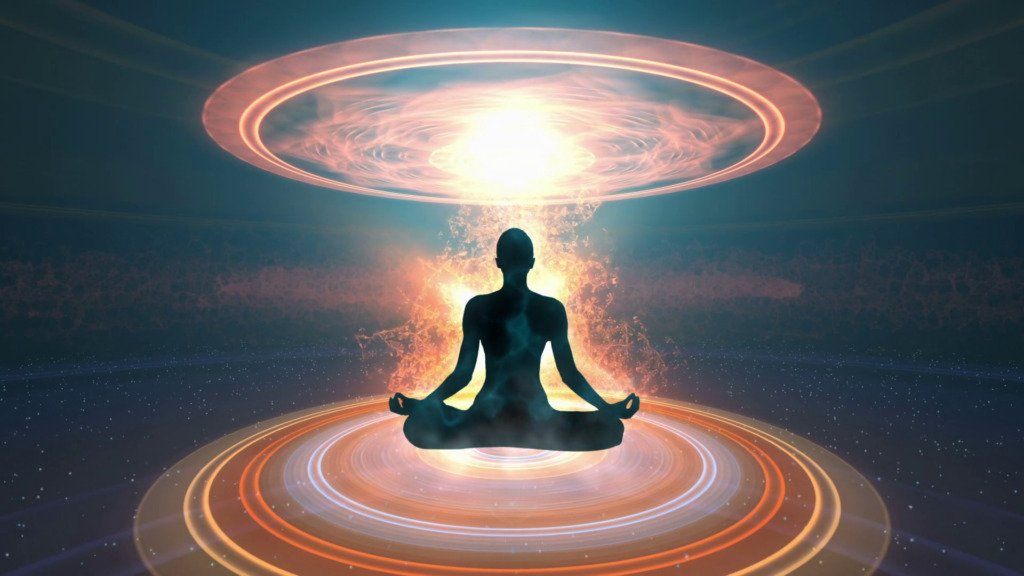By: Dr. Suman Bharali
In Ayurveda, nidra (sleep) along with ahar (food) and brahmacharya (right conduct) is said to be the three major physiological activities for maintaining homeostasis and health in human. It is said that a person sleeps when his mana (mind) gets exhausted and his functional indriyas (sense organs) detach themselves from their objects due to fatigue. The cause of sleep (nidra) is tamo guna and the cause of waking is satwa guna. Nidra comes by swabhawa (nature) no other cause is needed. In tamoguna predominant person, sleep comes during the day as well as at night. In the rajaguna predominant person, there is no specific time for sleep, sometimes it comes in the day at night due to the unstable nature of rajaguna. In satwa guna person sleep comes at midnight. In persons with decreased kapha and increased vata and who suffer from mental and physical pain sleep doesn’t occur at all. It’s called vaikariki nidra.
(Satwa, Rajas, and Tamas are called Trigunas of mind – three types of mindsets. Satwa is the pure state of the human mind. Rajas and Tamas are disorders according to Ayurveda. The type of mindset a person acquires defines his personality as well as health. Vata, Pitta, and Kapha are called Tridosas in Ayurveda. These entities when get vitiated cause different diseases and discomforts. Their balanced state determines the health of the person.)
Effect of proper and improper nidra (sleep)
Proper sleep gives happiness, nourishment, strength and immunity, potency, knowledge, and life.
Improper sleep gives diseases, sadness, emaciation, weakness, decreases potency, and brings death.
Enjoying excess sleep leads to diabetes.
Importance of nidra in life:
As for the protection of the body properly taking food is necessary similarly taking sleep (nidra) according to the rule is pleasant. In the obesity and emaciation of the body nidra (sleep) and ahar (diet) plays an important role.
According to Acharya Caraka there are 6 types of nidra:
- Tamobhava
- Slesmasamudbhava
- Manah Sarira ksrama sambhava
- Agantuki
- Vyadhianuvartini
- Ratri swabhava prabhava
Among these 6 types, ratri swabhava is a normal nidra, and experts say it is bhut dhatri (protects the life). The tamobhava type is the cause of sins. The remaining four are considered diseases.
According to Acharya Susruta, there are 3 types of nidra:
- Tamasi
- Swabhavika
- Vaikarika
According to Acharya Vagbhatta there are 7 types of nidra:
- Kala swabhava janya
- Amaya janya
- Citta kleda janya
- Deha kleda janya
- Kaphaja
- Agantuja
- Tamobhava
Among them kala swabhava janya holds the body. The last one tamobhava is the cause of sin. The remaining five are due to diseases.
Diwa Swapna (day sleeping)
It is said that a person can sleep during the day only in grishma ritu (summer season) because at this time accumulation of vata occurs, dryness increases and the nights are short. In other seasons day sleeping causes aggravation of kapha and pitta doshas. If a person remains awake at a night due to asatmya (unusual circumstances). The next morning he should sleep for half the time without eating.
The following persons deserve a day’s sleep:
Persons singing, studying, alcoholics, indulging in sexual activity, after purificatory therapies like vamana (emesis), etc., old, children, and weak people with depleted body tissues.
The person suffering from indigestion, chest injury, emaciation, hunger, thirst, diarrhea, pain, dyspnoea, hiccough, mental sickness, anger, fear, grief, who has fallen from a height, wounded, tired due to travelling or waking at night and those who are habitual of sleeping at day.
Adverse effects of day sleeping
The person who has more meda (fats) and kapha in their body should not sleep at day. Moreover, due to day sleeping, the following diseases occur:
Halimak (a liver disease), headache, coldness of body, heaviness of the body, body ache, indigestion, heaviness of heart, swelling, anorexia, horripilation, rhinitis, hemicrania, kelloids, carbuncles, itching, drowsiness, cough, asthma, heaviness of the head, throat diseases, delirium, srota avarodh (obstruction of channels in the body), fever, improper functioning of the sense organs, the spread of poisons.
Atinidra (excess sleep)
Improper/ incomplete digestion of food, xlosure of srotas (channels) by kapha, heaviness of body, Laziness Nidra (sleep).
Management of Atinidra (Excess Sleep)
Kaya virecana (purgation); Siro virecana (purification through nostrils); Vamana (emesis); Raktamokshana (bloodletting); Dhumrapan (medicated smoking); Kshudha (hunger); Trishna (Thirst); Vyatha (Pain); Harsh (pleasure); Soka (grief); Maithuna (sexual activity); Bhaya (fear); Krodha (anger); Cinta (worry); Utkanthata (enthusiasm); uncomfortable bed; increasing satwa guna; decreasing tamo guna; Ruksha ahara (dry food); Vyayama (exercise); Upawasa (fasting)
Anidra (sleeplessness)
It is said that the solutions for excessive sleep are the cause of sleeplessness, i.e. Kaya virecana (purgation), Siro virecana (purification through nostrils), Raktamokshana (bloodletting), Dhumrapan (herbal smoking), hunger, thirst, pain, pleasure, grief, sexual activity, fear, worry, enthusiasm, uncomfortable bed, increasing satwa guna, decreasing tamo guna, dry food, exercise, fasting.
Other factors:
Karya (engagement in work), kala (sleeping at an improper time, old age, etc.), vikar (due to some disease), prakriti (by nature/ habit of the individual e.g., satwik person), due to vitiation of vata and pitta, kshaya (emaciation), manah santapa (mental trauma), abhighat (injury).
Management of Anidra (Sleeplessness)
Somatic treatment:
- Samvahan: comfortable body massage.
- Abhyanga: application of oil on head and body.
- Udvartan on body and mouth/face (asya)
- Tarpana of eyes. (Nourishment of eyes externally by medicated oils, ghee, decoctions, etc.)
- Lepa over head and face (vadan).
- Murdha and karna puran. (Nourishment of scalp and ears externally by medicated oils, ghee, decoctions etc.)
- Utsada (dry massage)
- Snana (bathing)
- Sirodhara (a therapy under Ayurveda where medicated oils, decoctions, etc. are poured into a person’s forehead in a controlled way, to treat disorders, relaxation, and improving brain functions, etc.)
Psychic treatment:
- Kala: a person should sleep and wake at a fixed and proper time daily. (Sleep after 2 hours from sunset [around 9 pm] and wake at (brahmamuhurta) i.e., just before sunrise. [around 4 am].
- Happiness of mind (manah sukham).
- Pleasant music (music therapy).
- Pleasant smell or aromatherapy (manasoanuguna gandha).
- Completed work.
- Discussion on desired topic before sleep.
- If married, company of his wife.
- Meditation, sawasana, yoganidra etc. also helps to calm the mind and promote sleep
Food:
- Sali rice, wheat, grinded cereals, etc. should be eaten after proper processing.
- Diet should comprise of sweet, unctous (snigdha) substances.
- Milk, ghee, buffalo’s curd, decoction made from plants of Jivaniya gana.
- Meat soup of animals living in marshy areas or in water, in holes (bilesaya), viskira (chicken etc. who eat by spreading the food).
- Grapes, sita (mishri), sugarcane, preparations made from sugarcane, should be taken at night.
The bed should be:
- Comfortable (Sukha sayanam).
- Swatirna (clean and prepared).
- The bed or couch on the vehicle should be soft and pleasant.
- It should be placed in a comfortable, beautiful house with a pleasant wind (pravata) and pleasant smell (surabho dese). Colors like blue green white promote sleep.
(The author is an MD in Ayurvedic Medicine)







